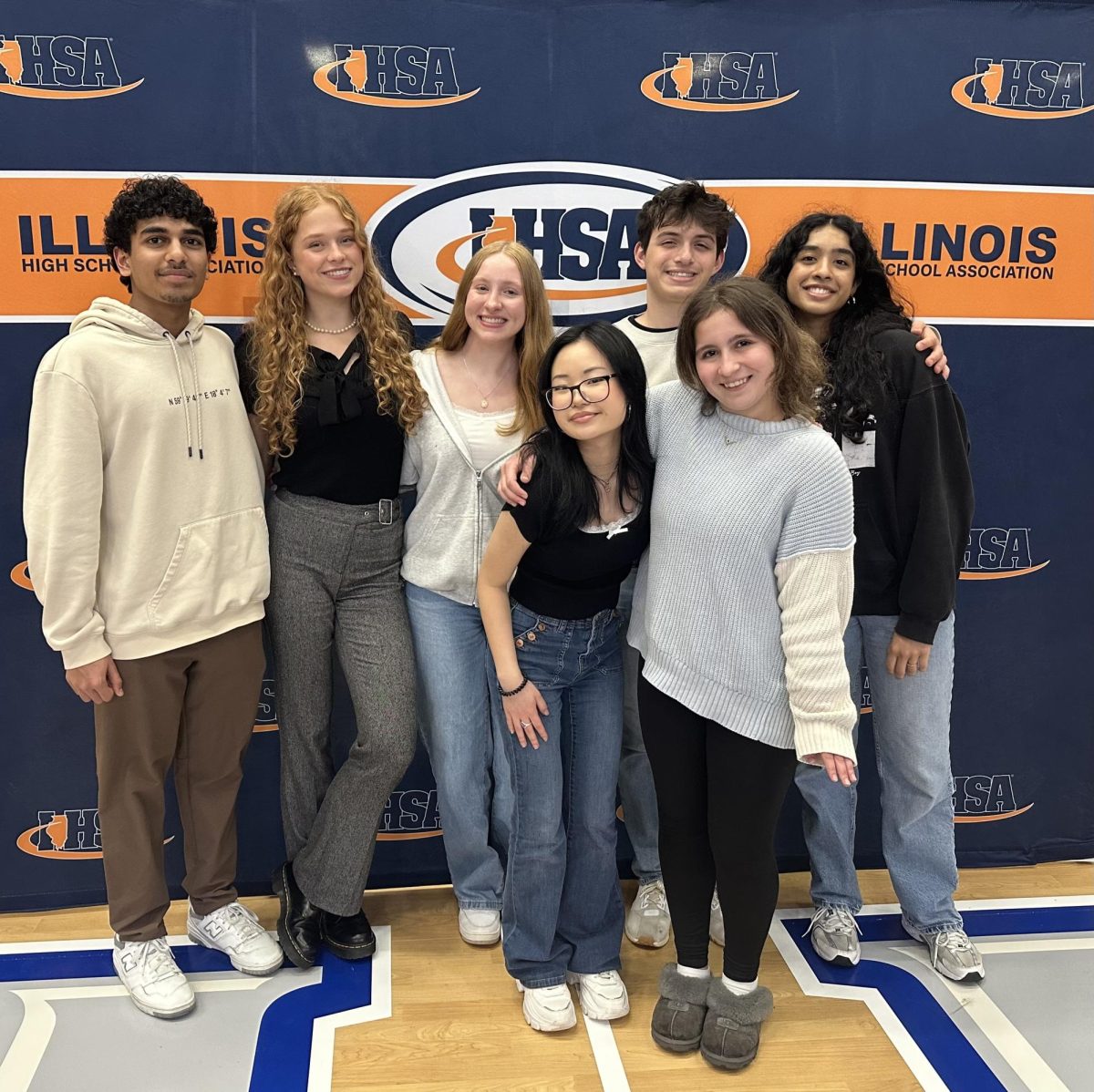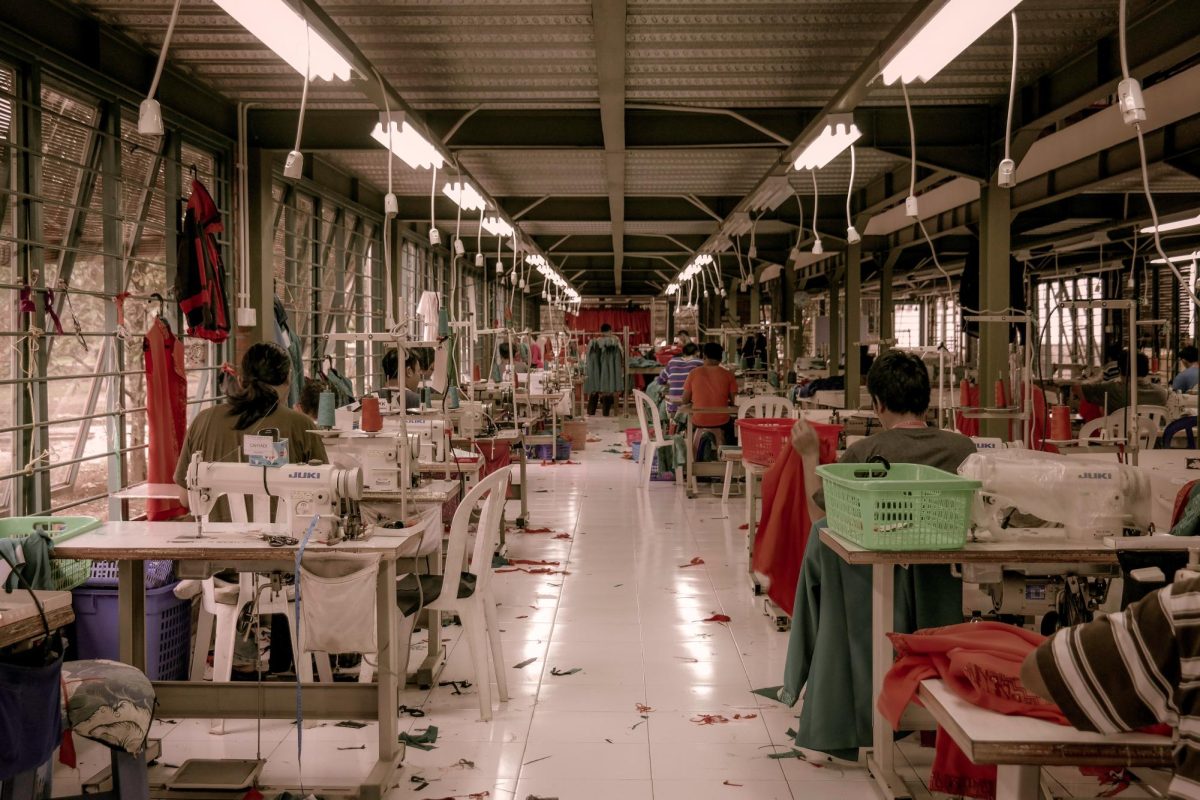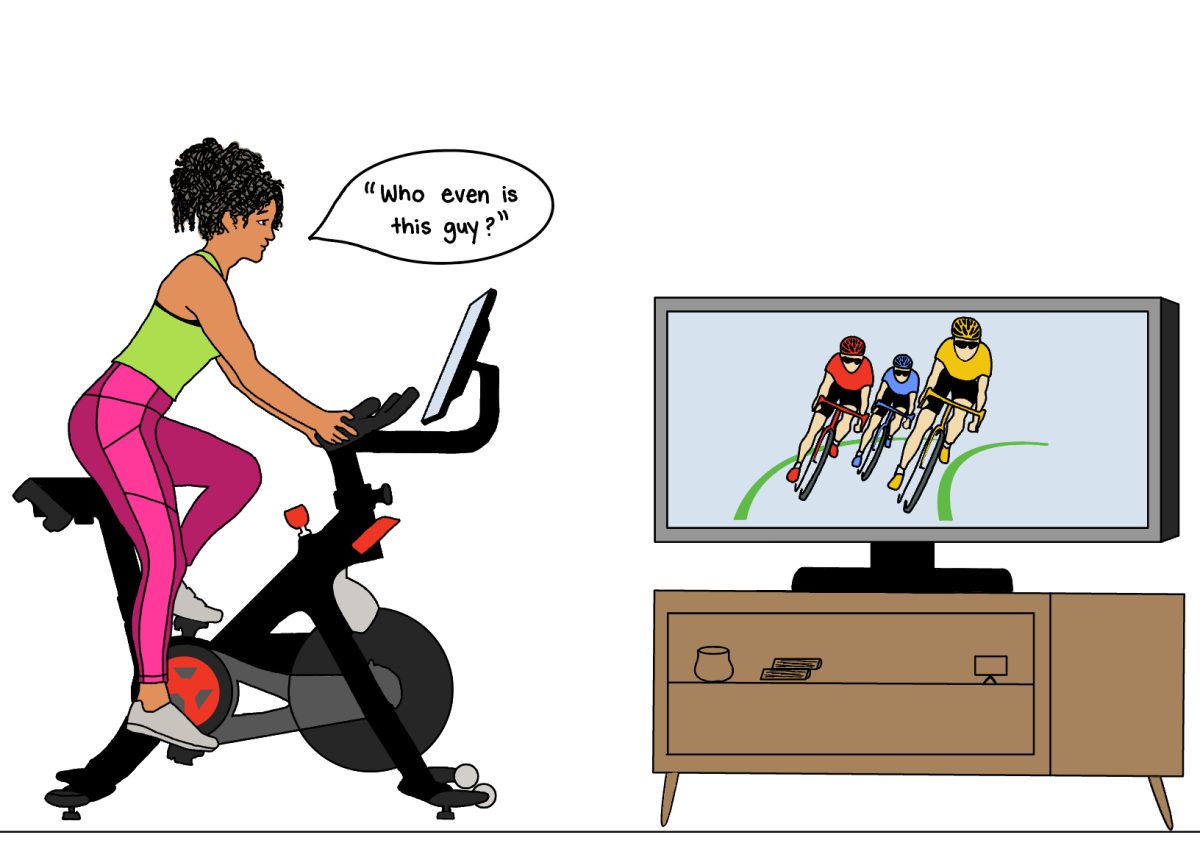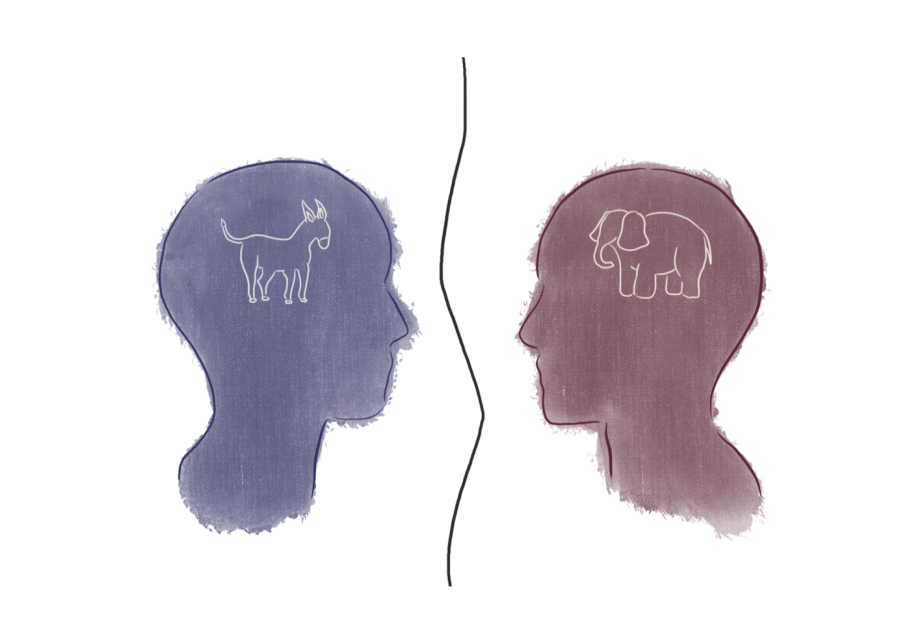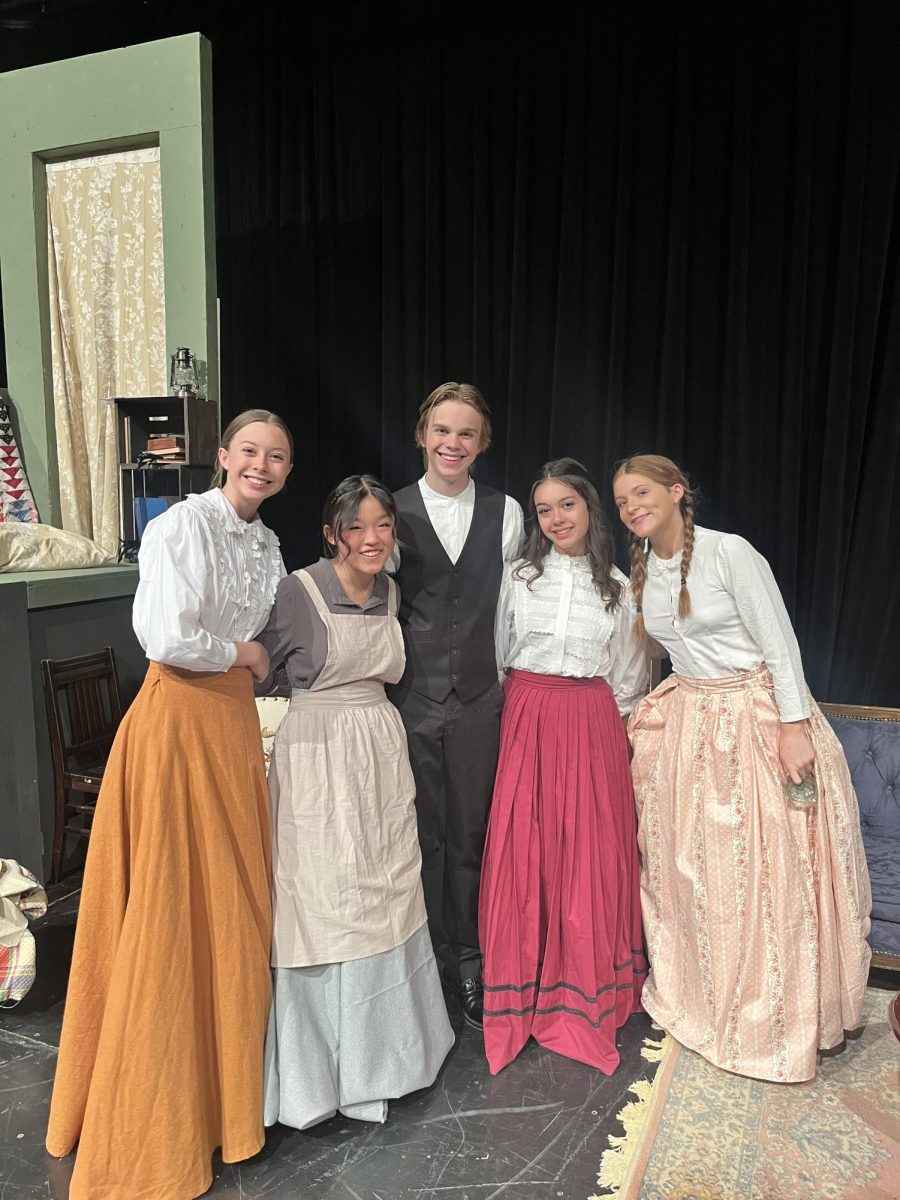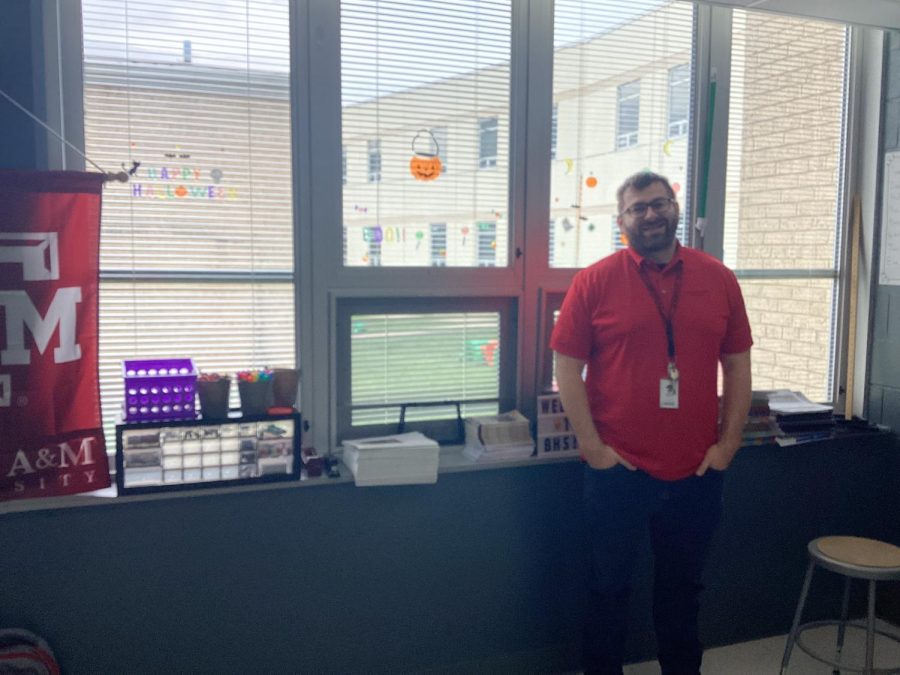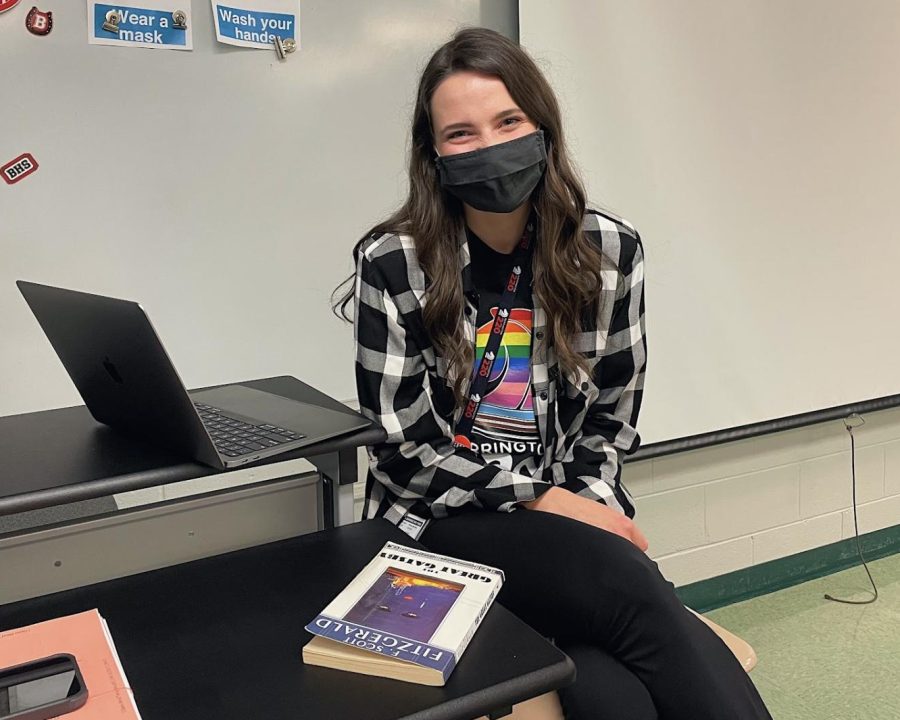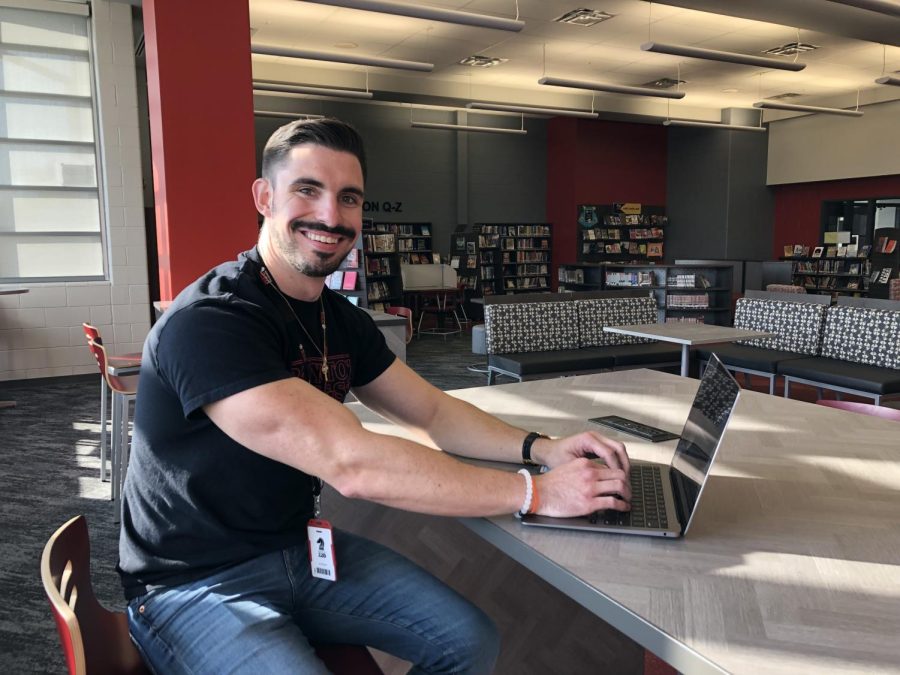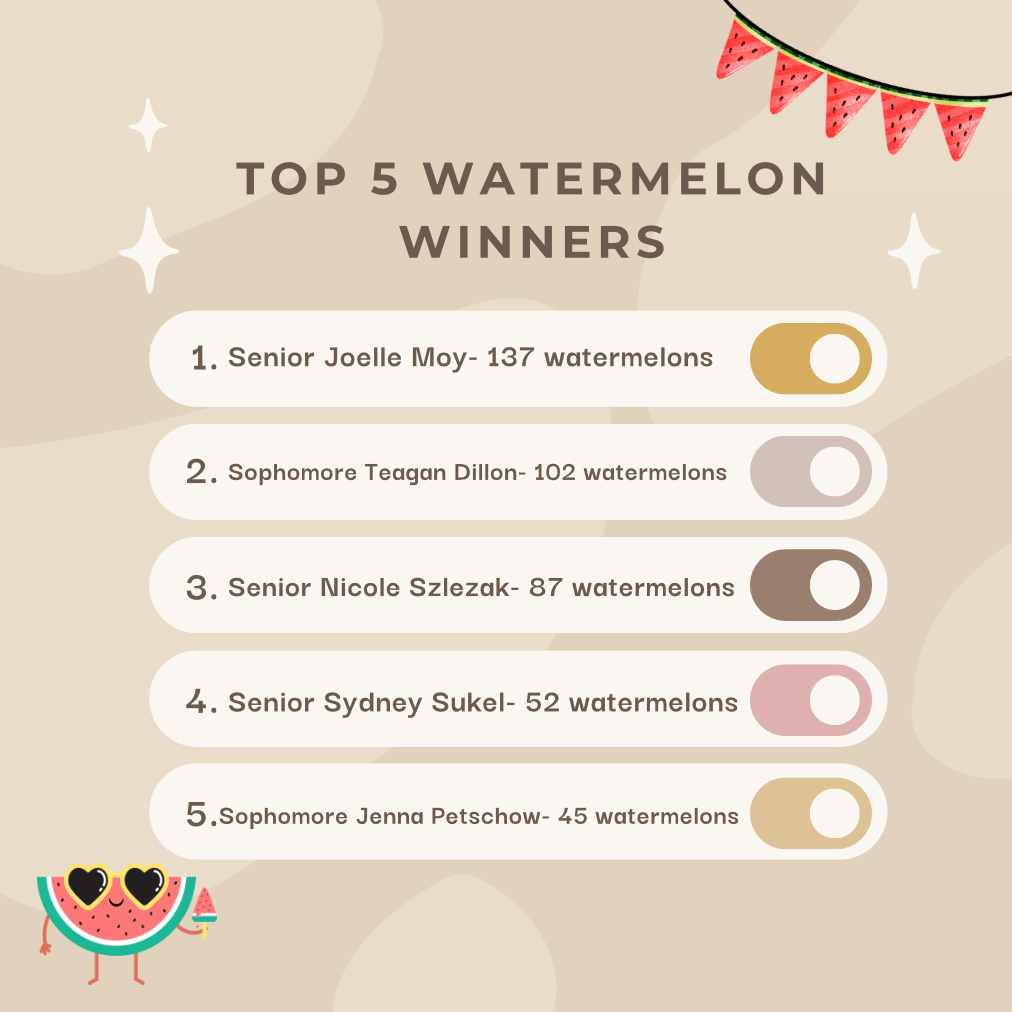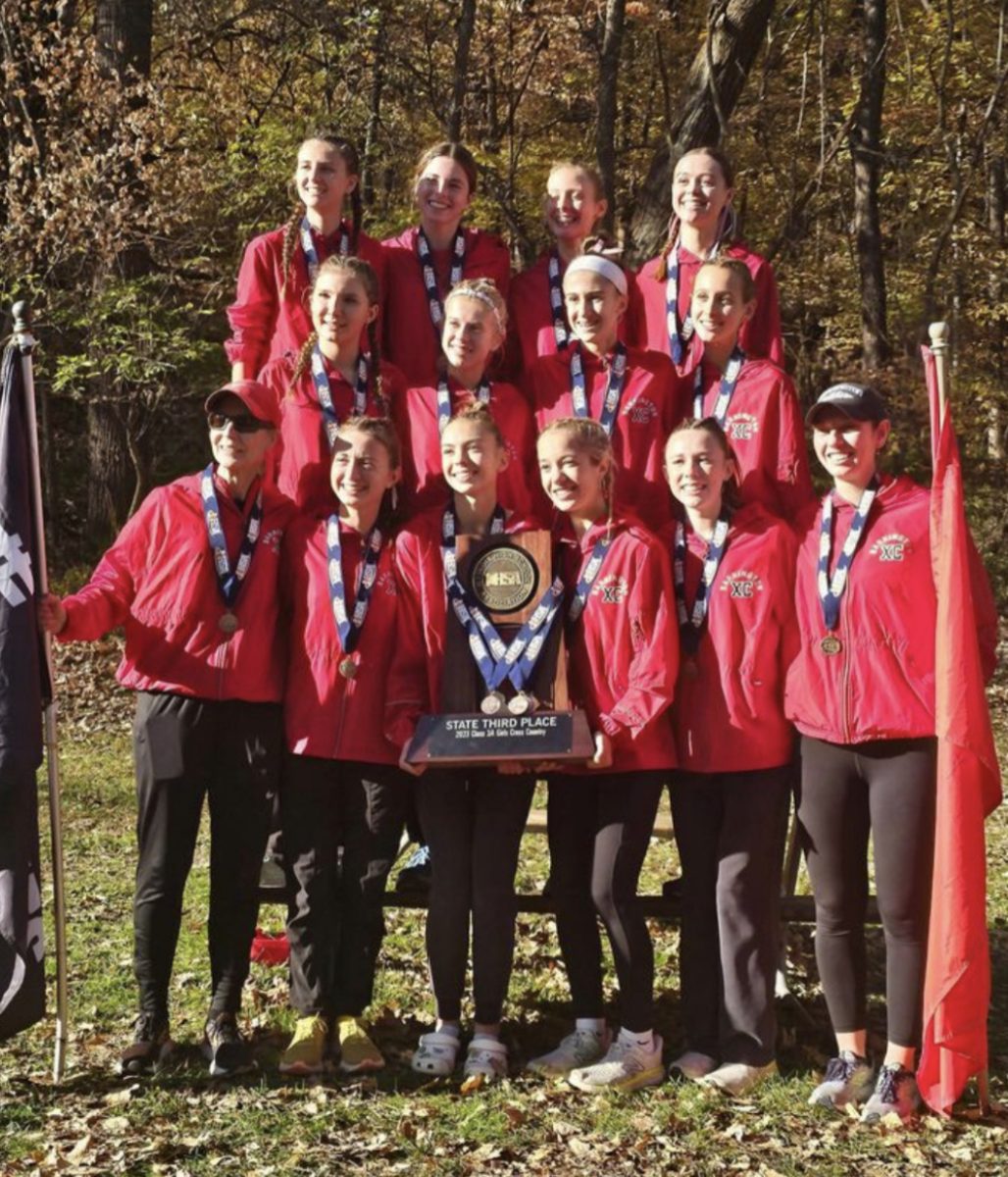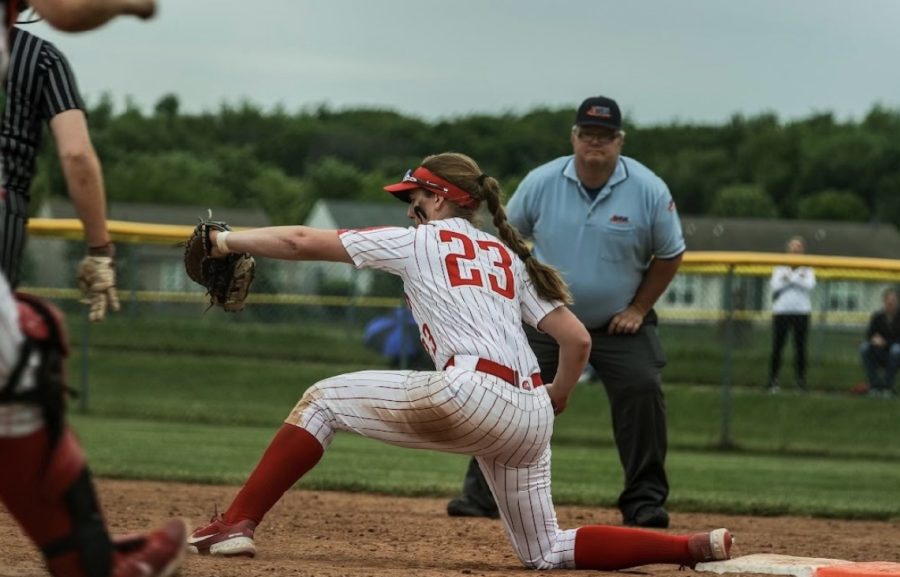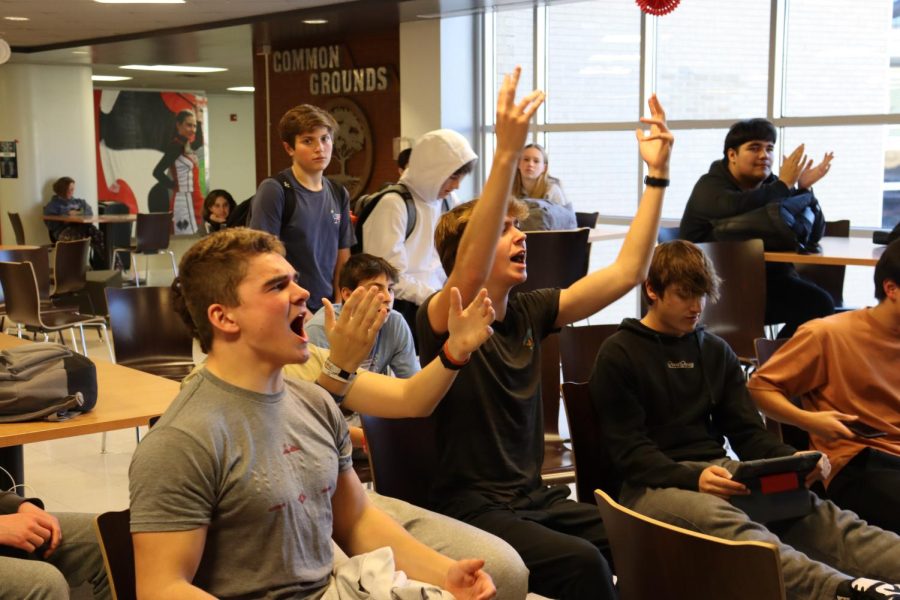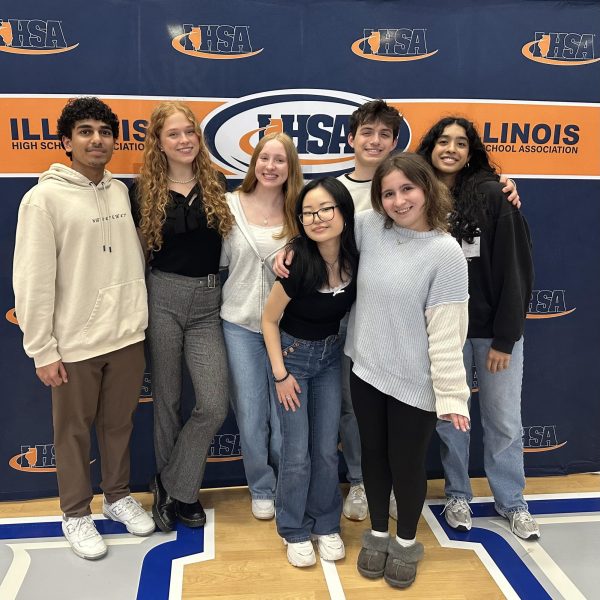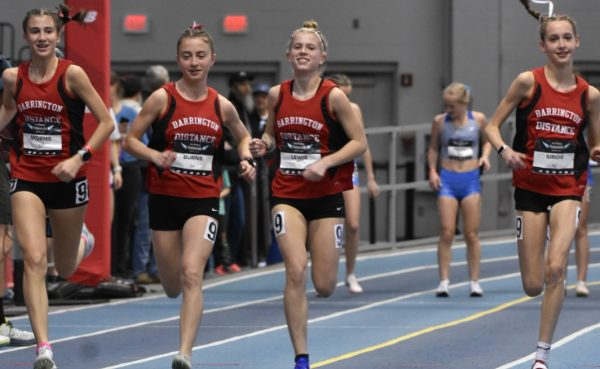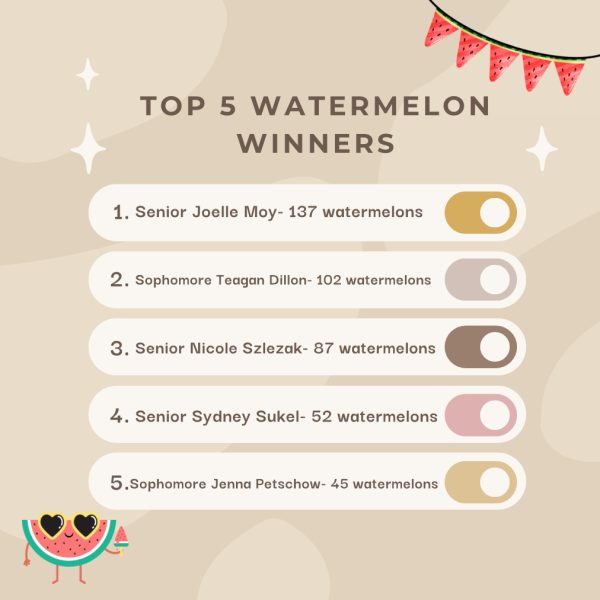World Cup craze: Emotions run high during World Cup games
Hordes of students, many sporting soccer jerseys, crowd around the commons TV, anxious as they track the soccer ball moving from one player to the next. As the ball moves toward the net, tensions rise. Students move towards the edge of their seats, anticipating a goal. When the ball finally does fly into the net, cheers and groans alike sound from the sea of students in the commons.
“It’s very intense. People really get into it. They’ll be shouting, they’ll be screaming like, ‘Oh my God, no, can you believe this?’ They’re watching their screens so intently and waiting for every next move,” junior Shafa Kazmi said.
The World Cup held its first game on Nov. 20, 2022. The soccer tournament, which takes place once every four years and is hosted by the Fédération Internationale de Football Association, consists of the top 32 national teams. This year, the games are held in Qatar.
Junior Emily Lewis, a soccer player herself, enjoys watching the event. Lewis is a goalkeeper and has been playing soccer for 12 years. She played in a recreational league up until fourth grade, when she started club soccer at FCX, the travel division of the Barrington Area Soccer Association.
“I’m not as into it as some people might be, like who make a lot of bets on it, but I’m interested in watching it,” Lewis said. “For a lot of countries to come together and play their sport for their country, I feel like it’s a very cool thing to see.”
Born in Europe, where “everyone loves soccer,” junior Mathias Leanza has always been a fan. His dad and grandpa, especially, got him interested in the games. Leanza enjoys the competition between the many nations.
“I think, compared to other sports, it’s a more accessible sport,” Leanza said. “Everyone’s really excited about it. Even people who don’t play soccer enjoy watching it, especially when their own nation is playing.”
Both Leanza and Lewis see communities form because of the games.
“Everyone is enjoying the sport and watching it together, even though you’re supporting different teams. You see people watching the game and they’re both cheering for a different team, but they still enjoy watching the game together,” Leanza said.
Lewis has noticed a greater sense of unity in the school. She sees students in class watching the games and checking scores, connecting regardless of whether they are longtime fans or not that into the sport. Lewis has also noticed a greater general excitement about the World Cup, more so than previous tournaments.
“I feel like a lot of people are very excited about big sporting events, especially post-COVID with 2020 seasons being scrapped and a lot of teams not being able to play,” Lewis said. “I feel like that’s why people are super, super excited to be supporting such big sporting events because they’ve had the absence of that in past years.”
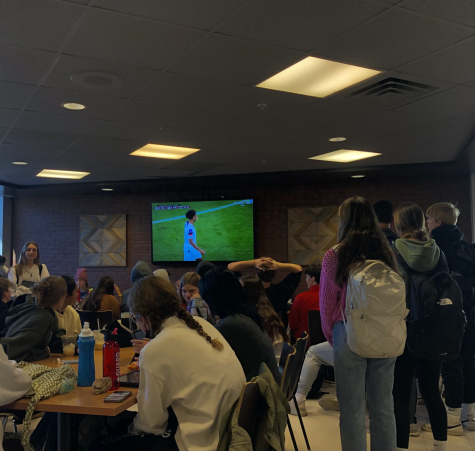
Lewis enjoys the increase in interest in the World Cup from those who generally do not care for the games, as well.
“It can be a little funny seeing people who don’t really know a ton about soccer [watching the games], but I don’t necessarily see it as annoying,” Lewis said. “I feel like soccer is something that people might not know a ton about but is something they definitely should know about. It’s something that deserves attention because it’s a really cool event.”
As most of the games run during school hours, Lewis plays the game audio through headphones while listening to her teacher. At home, she enjoys watching the games with her family, especially her dad, who spurred her interest in sports. Lewis was initially rooting for the United States but, following their loss, began rooting for Brazil.
“When I watch a game, I always get nervous for no reason. I’m always kind of like, ‘Are they going to score or are they not going to score?’” Lewis said. “It doesn’t really matter who I’m rooting for. It’s nerve wracking either way.”
Lewis feels that, as long as it is a work day, teachers should play the game on the big screen. Though she understands the academic pressure the end of the semester brings for both students and teachers, she feels many, especially those originating from a country that is participating in the tournament, would appreciate having the games on. Leanza, whose home countries are France and Italy and is rooting for France, shares the sentiment.
“I think they should allow students to watch it because it’s [once] every four years. It’s a rare event and it’s only a month,” Leanza said.
As for those not interested in soccer, Leanza believes “they need to watch it” at least once. Lewis feels similarly.
“The World Cup has brought so many people together. A lot of times in history, we’ve been very divided all over the world. The World Cup is a very neutral basis for a lot of countries to come together to share a sport and experience that we all appreciate,” Lewis said. “It’s normal for someone to dislike a sport or an event and you can’t make everybody like something but I think this is a good thing for a lot of people, to come together even if they don’t love it.”
Your donation will support the student journalists at Barrington High School! Your contribution will allow us to produce our publication and cover our annual website hosting costs.


